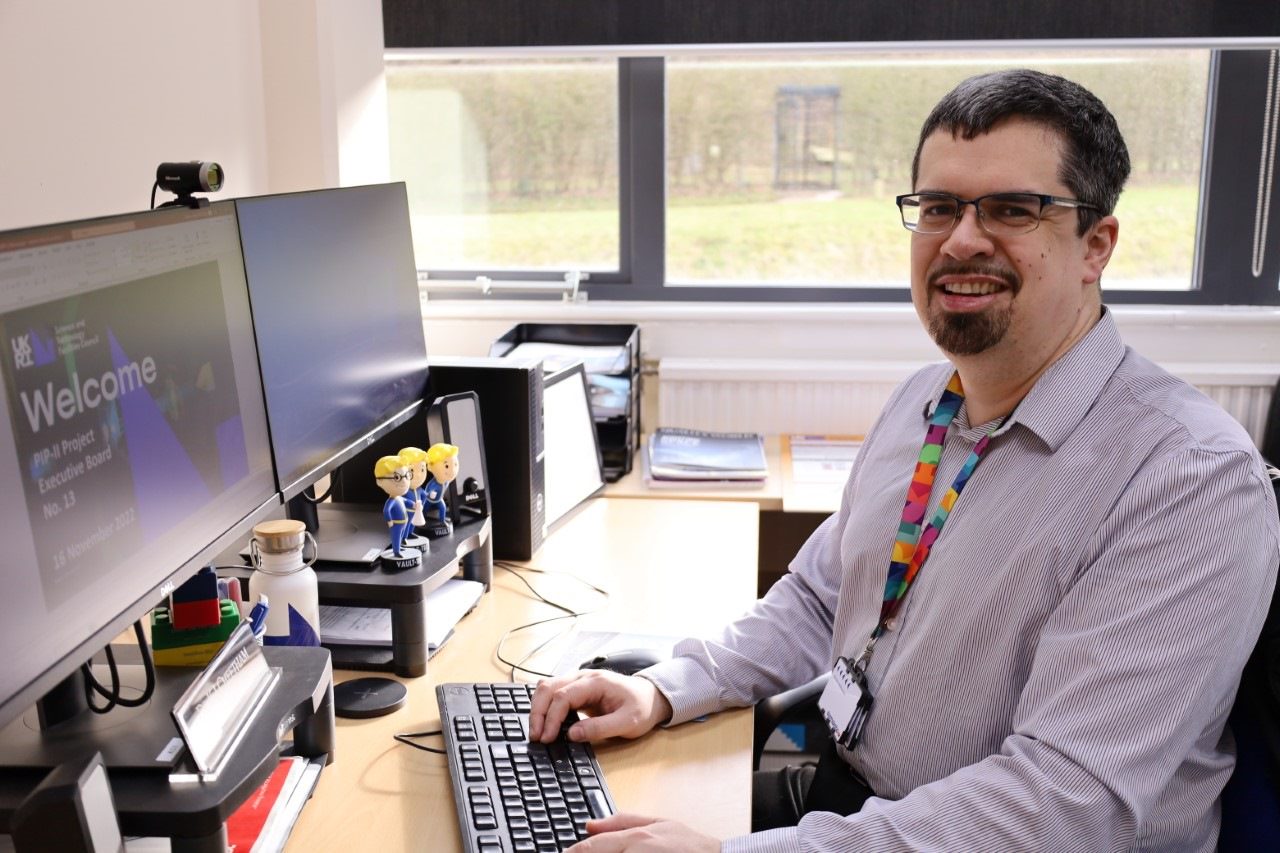As we come together to mark
World Quality Week 2023, I am honoured to contribute to the celebration and delve into the profound role quality has in our research and development environment.
What is Quality?
 Kieran (author) sat at his deskQuality, in its essence, encompasses meeting or exceeding customer expectations consistently. It is not confined to product or service excellence alone; it transcends into processes, culture, and the very fabric of an organisation. It means delivering on promises, ensuring reliability, and driving continuous improvement. The renowned quality expert, Dr. W. Edwards Deming, said that “good quality means a predictable degree of uniformity and dependability with a quality standard suited to the customer. Quality is the degree to which performance meets expectatio
Kieran (author) sat at his deskQuality, in its essence, encompasses meeting or exceeding customer expectations consistently. It is not confined to product or service excellence alone; it transcends into processes, culture, and the very fabric of an organisation. It means delivering on promises, ensuring reliability, and driving continuous improvement. The renowned quality expert, Dr. W. Edwards Deming, said that “good quality means a predictable degree of uniformity and dependability with a quality standard suited to the customer. Quality is the degree to which performance meets expectations.”
Quality in Research and Development (R&D)
Quality management principles are often associated with manufacturing and production lines, where the objective is to minimise defects and ensure consistency. However, in R&D, quality management plays an equally critical role, though its application may differ.
In our field, we are constantly pushing the boundaries of knowledge, seeking new frontiers, and striving to create innovations that have never been seen before. This uniqueness can lead to a cognitive bias known as the "false uniqueness effect." This effect can make us believe that each project is so distinct that established quality practices don't apply. But this couldn't be farther from the truth.
The False Uniqueness Effect
The false uniqueness effect warns us against overlooking the commonalities that exist across diverse projects. While each project may have unique scientific or technical objectives, they share the same overarching goal: to deliver results that meet or exceed stakeholders' expectations. Quality management helps identify recurring patterns, optimise processes, and ensure that innovation is reliable, reproducible, and aligned with the desired outcomes, regardless of the project's uniqueness.
Aligning Problem-Solving in Quality and Continuous Improvement with The Scientific Method
Problem-solving in quality management and continuous improvement follows a systematic approach akin to the scientific method, emphasising data-driven decision-making. Here's how the two align:
-
Identify and define the problem: Just as a scientist starts with a hypothesis or research question, quality management begins by identifying issues or deviations from expected outcomes. In R&D, this could be an unexpected experimental result or a deviation from project objectives.
-
Collect and analyse data: Both quality management and the scientific method rely on robust data collection and analysis. In quality management, this involves gathering data to understand the extent and causes of problems. Similarly, in the scientific method, data is collected and analysed to test hypotheses.
-
Develop and implement solutions: In quality management, corrective and preventive actions are developed and implemented to address identified problems. In R&D, this is akin to adjusting experimental procedures or refining project plans to achieve desired outcomes.
-
Monitor and sustain improvement: Quality management involves ongoing monitoring and measurement to ensure that improvements are sustained. In R&D, this corresponds to monitoring project progress and ensuring that results are reproducible and consistent.
-
Iterate and learn: Both approaches value iteration and learning from each cycle. In quality management, this leads to continuous improvement, while in R&D, it results in refining research methodologies and approaches.
Reflecting on World Quality Week 2023
As we celebrate World Quality Week 2023, it's important to remember the words of Dr. W. Edwards Deming: “Without data, you're just another person with an opinion.” In our R&D endeavours, data is the bedrock of our quality journey. It's through data that we dispel the false uniqueness effect, optimise our processes, and ensure that our innovative work meets high standards of quality. Quality isn't a hindrance; it's an enabler.
In line with the theme of World Quality Week 2023, "realising your competitive potential," it is essential to emphasise that quality is not merely a set of procedures and standards but a strategic imperative. The power of quality management is our key to gaining a competitive edge in the ever-evolving landscape of research and development. By adopting quality principles and embracing a culture of quality, we are not only enhancing innovation, but we are also increasing efficiency, ensuring the reliability of our results, and delivering exceptional experiences to our stakeholders.
We are enablers of innovation and reliability. Let's continue to embrace quality principles as we navigate the exciting terrain of R&D, unlocking our full potential as a pioneering organisation.
Further reading
-
Out of the Crisis, W. Edwards Deming, 1986, 978-0911379013.
-
ISO 9001 and product innovation: A literature review and research framework, Technovation, 48-49, p41-55, 2016.
-
Quality Management in a Research and Development Environment, ISOneWorld 2017.
-
Dissemination of ISO 9001: 2015 in R&D organizations, A. Pinheiro Costa Gaio & E. Pereira Eufrazio, 2022.
Visit the
CQI website to discover their World Quality Week events.
Written by Kieran Cheetham, member of the
Portfolio and Quality Management Team and Quality System Manager for Technology at Daresbury and
ASTeC.
